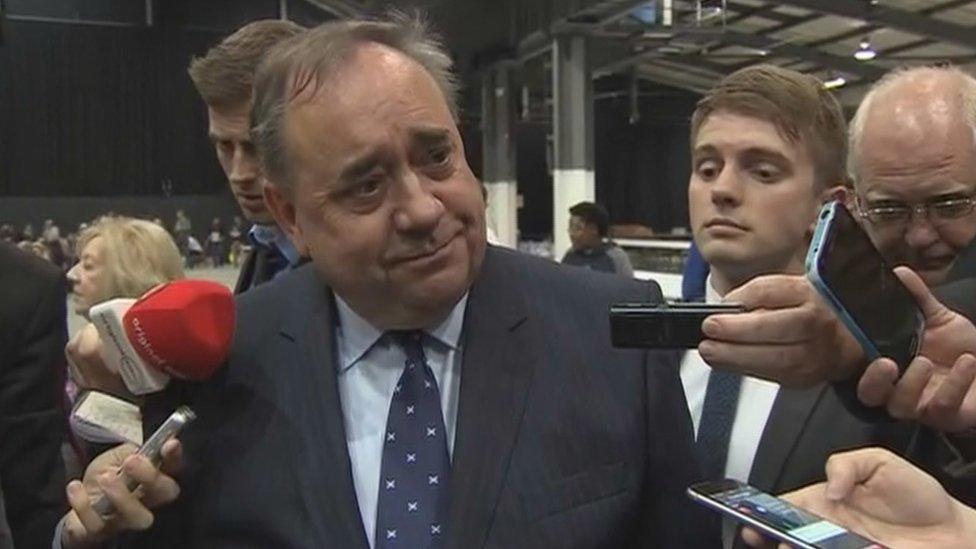How constitutional referendums 'transformed' Scottish politics
- Published
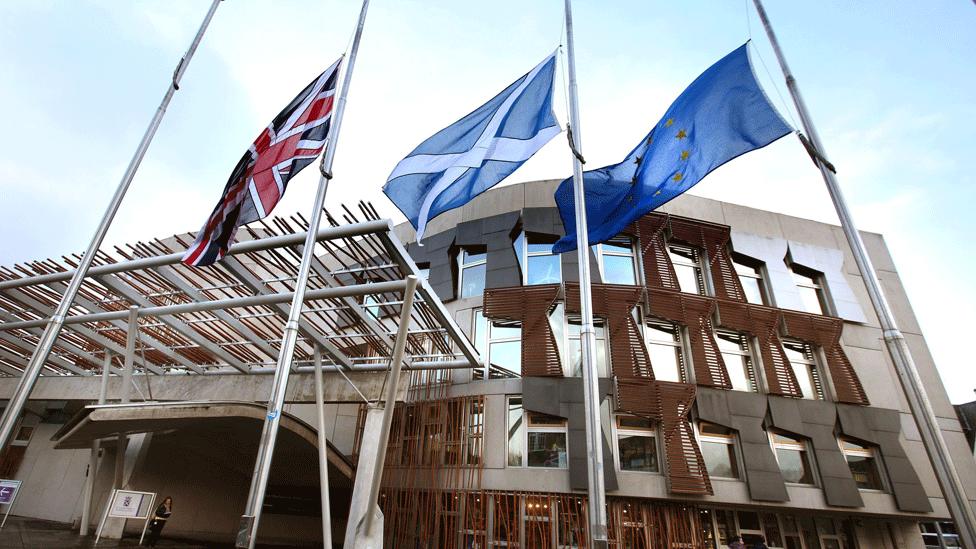
The votes on Scotland's relationship with the UK and with the EU have transformed the fortunes of the country's parties
The referendums on independence and Brexit have "completely transformed" the party political system in Scotland, a new analysis has concluded.
The British Election Study charted how the party order has switched over the three general elections since 2010.
A total of 21 seats changed hands north of the border in June's snap election, after 50 had switched in the 2015 vote.
The study said the two constitutional referendums had been the catalyst for the changes.
The SNP moved from third place in 2010 to first in 2015 and 2017, while Labour slid from first to third and the Conservatives rose from fourth to second.
The study, by Dr Chris Prosser and Prof Ed Fieldhouse from the British Election Study (BES) team, examined how voters changed their preferences between the 2015 and 2017 elections, through the lens of how they voted on independence and Brexit.
Their UK-wide study has followed a panel of 30,000 voters for the past three years, asking hundreds of questions about their political views and choices on 13 occasions. It found that Brexit was by far the single biggest issue on voters minds during the 2017 election.
In Scotland, the 2017 vote saw the SNP lose ground to all of their main rivals, with the Conservatives gaining 12 seats, Labour six and the Lib Dems three.
The party lost more than 476,867 votes on 2015, when they had gained 50 seats amid a surge of support in the aftermath of the independence referendum the previous year.

Analysis by Briain Taylor, BBC Scotland political editor
The Brexit referendum was huge, it was the more recent one and negotiations are well under way - but it seems the more salient one in longer term Scottish politics is the independence question.
If you look at the No and Remain voters, the Tories were able to pick up about 20% of Labour voters in this category.
In other words, they were able to pick up votes from both No and Remain and No and Leave .
The common factor? It's that No vote - the common issue.
The big issue in Scottish politics remains the independence question.

The study, external found that the SNP vote had held up best among people who voted Yes in the 2014 independence referendum and Remain in the 2016 EU referendum, retaining around nine in 10 votes in this category. They lost some votes to Labour, but won over the majority of 2015 Green voters in this group, with the latter party standing in only three seats.
However, the survey found that the SNP lost about four in 10 of voters who chose Yes in 2014 and Leave in 2016, with a roughly equal proportions shifting to the Conservatives as to Labour. The BES report noted that "many 2015 SNP voters were driven away by the party's strong pro-Remain stance".
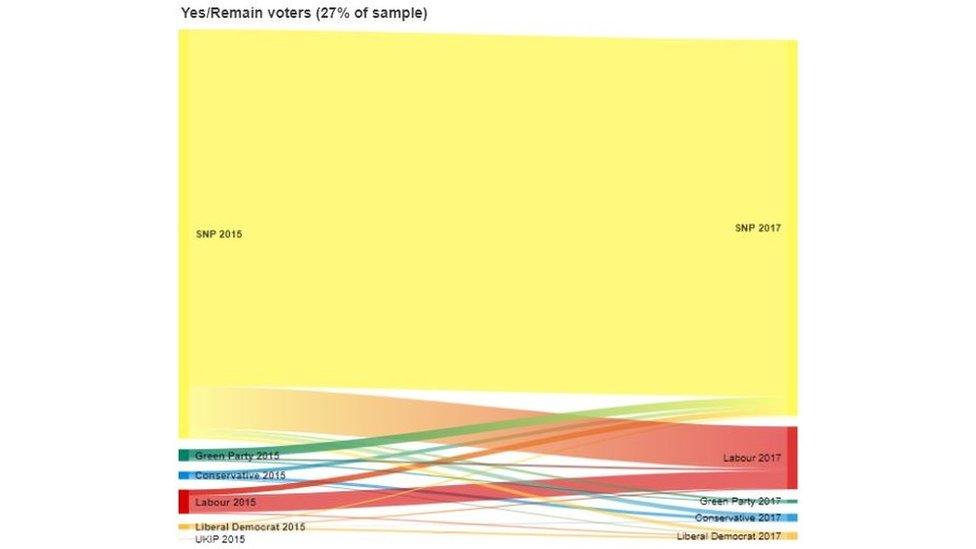
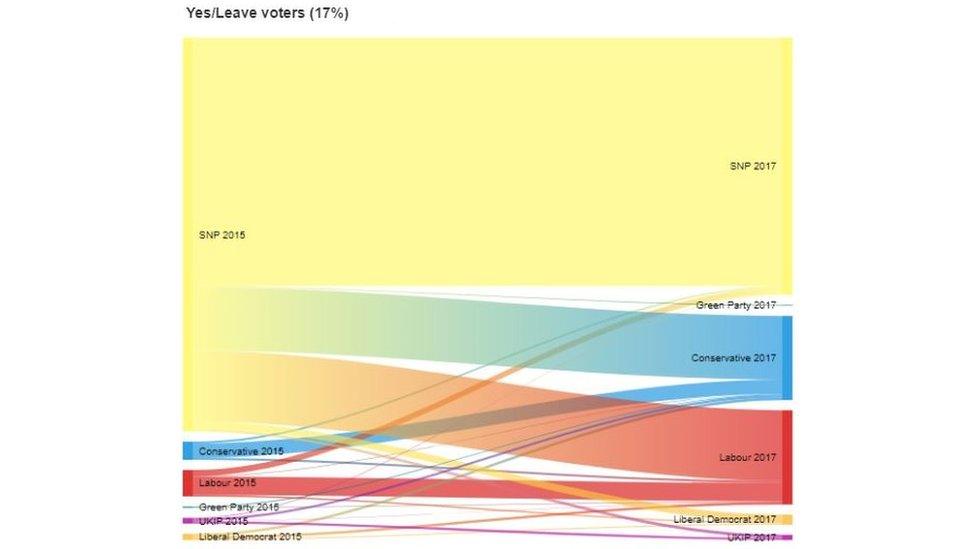
Voters who opposed independence but backed EU membership were the largest group in the electorate, according to the survey. Labour lost one in five of their 2015 voters in this category to the Conservatives in 2017, but many of these losses were cancelled out by votes gained from the SNP and Liberal Democrats.
In total, Labour won about four in ten voters in this group, but the Conservatives won about three in 10, a much improved performance on 2015.
The Conservatives performed best among voters who opposed both independence and membership of the EU, winning nearly two-thirds of this category. They gained almost half of Labour voters and six in 10 Lib Dem voters from 2015 in this group, and also made gain from UKIP and the SNP.
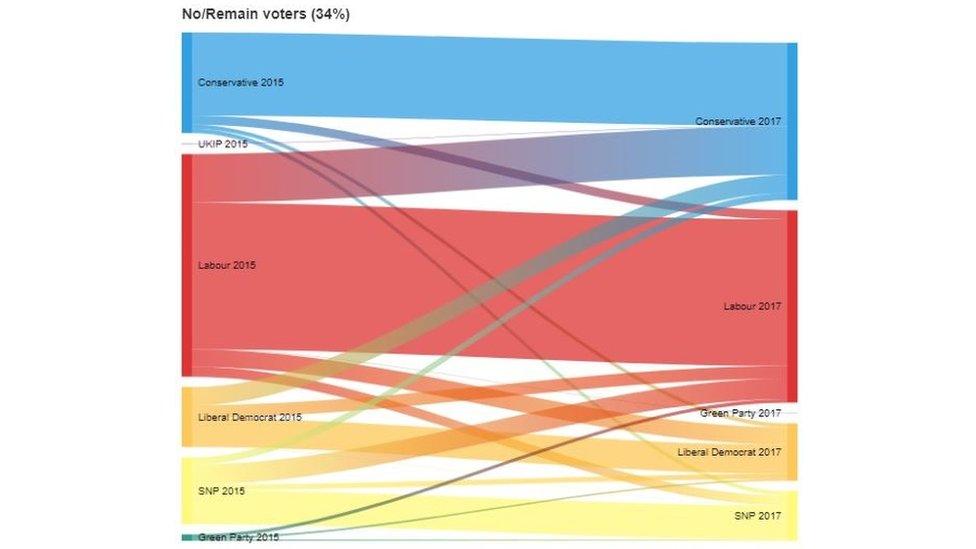
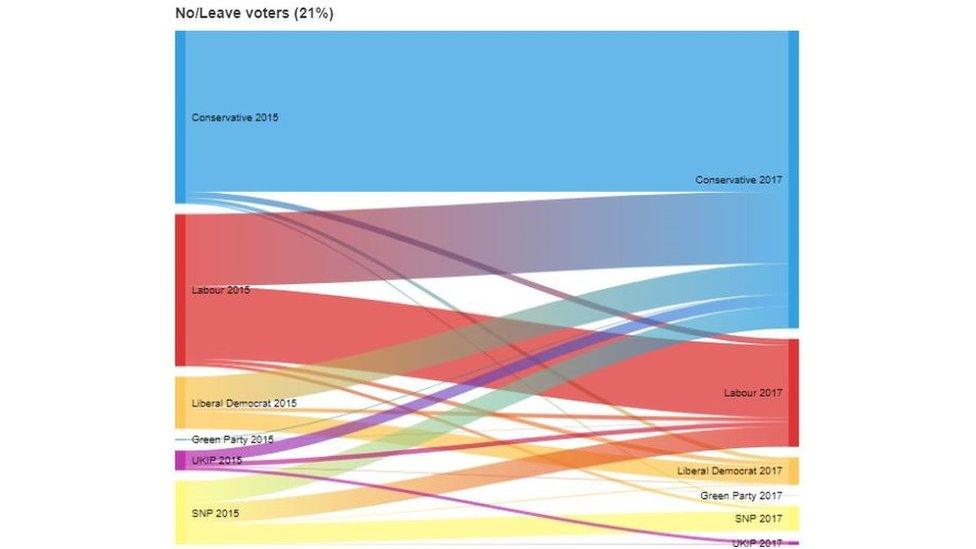
The study's authors wrote: "In 2015 the Yes side shifted rapidly to the SNP. In 2017, Yes/Remain voters stayed loyal to the SNP, but they suffered heavy losses amongst Yes/Leave voters.
"The relative success of the Conservatives in attracting a substantial minority of No/Remain voters in spite of the national party's hard line position on Brexit made a significant contribution to their increase in vote share.
"In contrast, Labour preformed relatively poorly amongst the No/Leave group, losing a large proportion of voters to the Conservatives. The ability of the Conservatives to capture No/Remain voters as well as No/Leave voters may be partly attributable to their strong campaign, but also reflects the relative importance of the two referendums in defining Scottish voters political identities.
"The last few years of Scottish politics have a clear tale to tell: referendums that cut across party lines can lead to major disturbances in the party system."
- Published1 August 2017
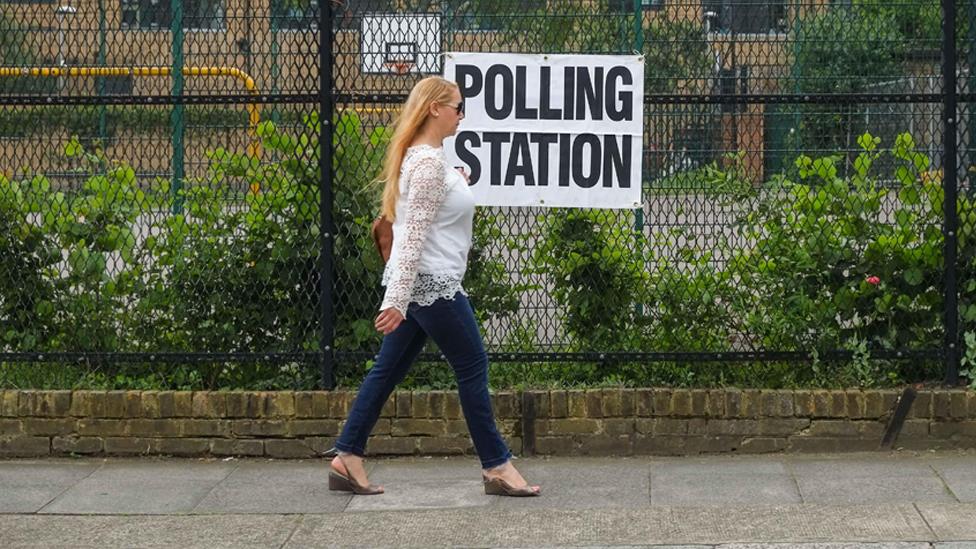
- Published12 June 2017
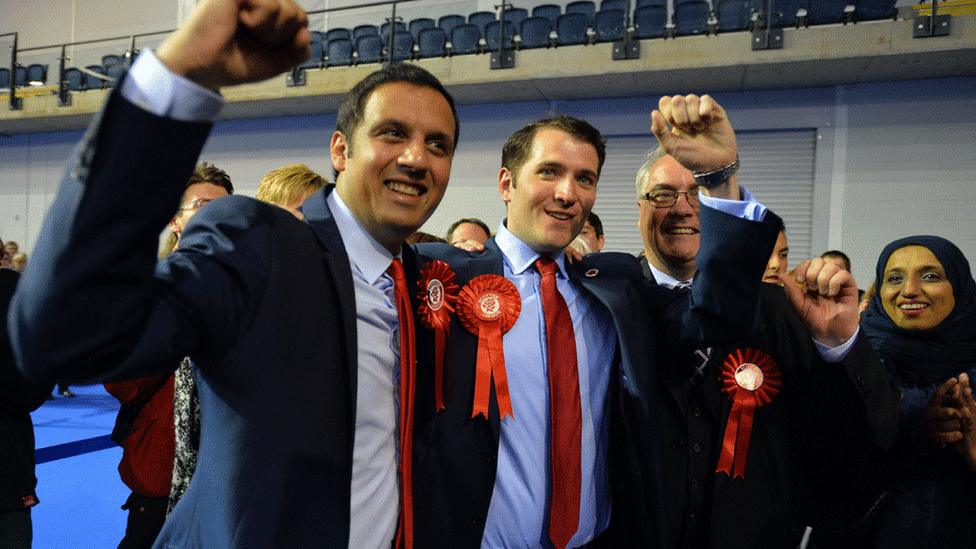
- Published9 June 2017
